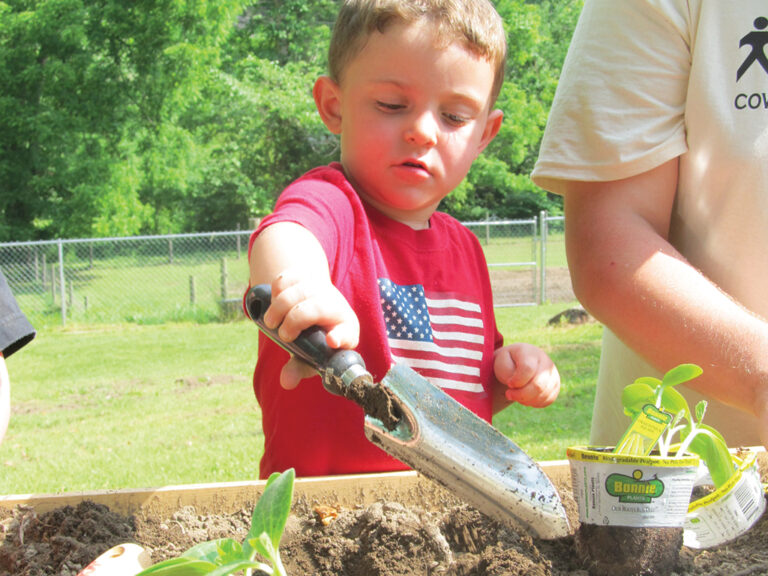Finding new ways to combat food insecurity, one community at a time
Food insecurity—limited or uncertain access to food—has long been an issue within the Appalachian region. David Cooke ’82, founder of Grow Appalachia, first began to consider how to combat food insecurity when he worked in outreach education in southern West Virginia. “I had always worried about the fact that our families are not food secure,” said Cooke. “They’re worried about where their food is going to come from; they’re worried about the quality and safety of food; but at the same time, over the previous 30 years, people had forgotten how to grow their own food.”
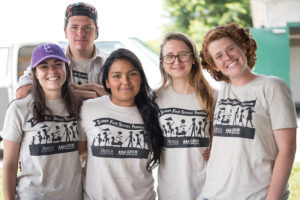
Cooke believed with a little help and support, people in the region would embrace the opportunity to grow their own food. And, it turns out, he was right. By coincidence, entrepreneur John Paul DeJoria, founder of the Paul Mitchell company, had learned of the food insecurity situation in Appalachia. He was looking for an organization through which his foundation—Peace, Love & Happiness—could address this challenge. After DeJoria was directed to Berea College, Cooke had a source of major funding to try out his ideas.
During their first year of operation in 2010, Grow Appalachia participants at four partner sites in Kentucky grew 120,000 pounds of food for more than 2,800 people. The following year, the partner-ship expanded to Tennessee, Virginia, and West Virginia, producing food for 3,694 people.
Today, Grow Appalachia is comprised of 32 chapters in communities across the Appalachian region. It helps them produce nutritious foods in an inexpensive way year-round. Cooke estimates that these communities have grown 2.9 million pounds of food to date.
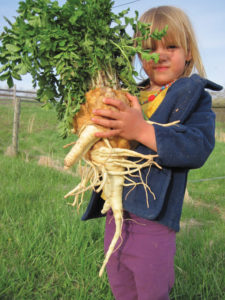
“There are many facets of Grow Appalachia,” said Cooke, but “most importantly, it provides food security to families, teaches growers to share, and encourages self-sustainability.” He takes pride in knowing the program is “bringing to light the lost ways of farming of Appalachia’s past generations,” and increasing many participants’ sense of cultural self-worth and countering the negative stereotypes that portray all Appalachians as unhealthy and dependent.
While debunking old stereotypes is important, Cooke’s eyes are firmly on the future of the region and how Grow Appalachia can continue to support families and create self-sustaining agriculture. According to him, the organization is on pace to provide around 600,000 pounds of food to nearly 1,500 families this year. These farmers will realize a profit of $200,000 from selling excess produce, which will provide them the necessary funds to purchase garden supplies for the following year. But, simply growing food will not solve all the problems.
A continual challenge for each chapter of Grow Appalachia is finding the best way to serve the needs in individual communities. For example, one chapter in Laurel County is part of the United States Department of Agriculture’s National Institute of Food and Agriculture Community Foods Project (CFP) Competitive Grants Program and wants to develop an economic base. The chapter in Berea is focusing on meeting the needs of local children during the summer months.
Creating Community and Economic Opportunity
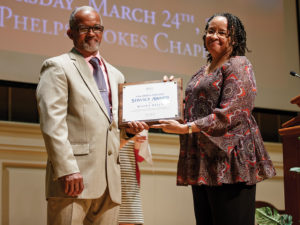
President for Diversity and Inclusion Linda Strong-Leek.
Wayne Riley, a native of Laurel County, became an active community builder when his dying aunt implored him to save the oldest African-American church in his home county from destruction. He honored her wish by building community partnerships to save the church and forming a nonprofit called the Laurel County African-American Heritage Center (LCAAHC) to preserve and document the African-American experience in Laurel County and south central Kentucky. Riley had always believed that socializing and eating food was central to that experience, so he was enthusiastic when he learned about Grow Appalachia. Initially, Grow Appalachia staff provided support for the community gardens Riley began, but in the last five years the partnership has grown substantially.
Most recently, the LCAAHC was selected as one of five Grow Appalachia partners to participate in the CFP Competitive Grants project to “foster self-sustaining solutions that help make healthy foods available to families living in low-income neighborhoods.” The three-year, $375,000 grant will supply equipment, market training, and infrastructure to install five commercial kitchens in the southeast Kentucky region. Other partner sites are located at the Red Bird Mission, the Cowan Community Center, the Hindman Settlement School, and the Pine Mountain Settlement School.
These kitchens will enable individuals to process food to meet FDA standards, allowing them to “sell online or across state lines,” said Cooke. The goal is to position organizations such as LCAAHC to use agriculture to create revenue to support their educational programs.
Summertime and Fresh Food
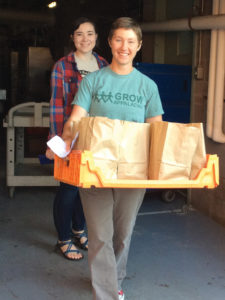
This past summer, Grow Appalachia did something that had never been done before in the state. Inspired by her mother, Linda—who is raising three young grandchildren in a local housing authority complex—Grow Appalachia Partner Site Coordinator Martina Leforce brought the Summer Food Service Program out into the community.
Many children in Berea go without adequate breakfast and lunches when school is out for the summer, as is the case in other communities. The NPR story, “School’s Out, And For Many Students So Is Lunch,” reported that while nearly 30.3 million children receive free and reduced-price lunches at their public schools, fewer than 2.6 million receive similar aid during the summer. Grow Appalachia traveled to various subdivisions within Berea to host a Summer Food Service Program. The organization’s volunteers and interns, mostly from Berea College, served lunch to children and their parents since the school system does not offer these opportunities during the summer.
“We were at two churches, a couple of city parks, the farmer’s market, and we went out into the neighborhoods and the city to be close to where kids lived so they could have access to the food,” recalled Cooke. By the end of the summer, the program had served 13,880 meals to children
in the city of Berea.

But, the impact was felt in ways beyond bellies full of healthy food. It also helped fill hungry minds with new ideas. Leforce and her team of students created educational opportunities for the families who participated in the program. In addition to playing games and reading to the children, the team led field trips to the Berea College greenhouse and aquaponics facility; hosted a presentation from the Hummel Planetarium; and offered sustainability and recycling workshops as well. The feeding program also gave a boost to another educational program not directly connected to Grow Appalachia. “I learned that Berea Community School normally accepts 50 kids to its summer coding camps,” said Leforce, “but last year (2016) they were able to accept 80 because they did not have to worry about [providing] food.”
Mike Hogg, superintendent of Berea Community Schools, said, “Not only did the summer feeding program provide meals to some of our neediest families throughout the summer, but it also allowed us to lengthen our summer camps and hire more staff. The result was well-fed students who were fully able to benefit from our summer camps.” As any teacher can tell you, “a hungry student is a distracted student,” said Hogg.
While the program’s success in 2016 was remarkable, Leforce says the team has even grander plans for the future. She wants to put the program on stable financial footing by getting financial support from sources other than Grow Appalachia. The team has already secured funding for the summer of 2017 from the city of Berea, KentuckyOne Health, and WellCare of Kentucky. With this additional funding, the group will be able to broaden the areas it serves within Madison County, and perhaps extend into adjoining parts of Jackson, Garrard, and Rockcastle counties.
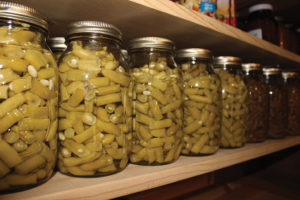
In the longer term, Leforce hopes to become “a model for other colleges that want to sponsor similar programs in their communities.” Through online tutorials, webinars, and regional conferences, the knowledge gained locally can be used to solve a problem that affects the entire region. Kentucky, she notes, is 48th nationally in Summer Food Service Program participation.
Although Grow Appalachia started with a focus on food security, its work has evolved to touch many other essential parts of community development. It meets individuals and groups where they are and helps them build on the best parts of their community. As Cooke puts it, “Our philosophy is, ‘we don’t ask people to start a new program; instead, we find people who are doing things that fit the goals of our programs and partner with them.’”
Learn more about Grow Appalachia at https://growappalachia.berea.edu/ or by following them on Facebook, Instagram, and Twitter.


